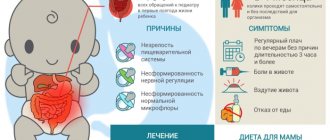Path: Home page › Vitamins and minerals › Children's vitamins for appetite
Among the factors influencing children's health, a special place is occupied by the consumption of sufficient amounts of vitamins and minerals, which allow all systems of the body to actively develop, have a positive effect on the processes occurring in it, and strengthen the immune defense.
A lack of useful components often provokes increased fatigue, lack of desire to eat, moodiness, insomnia, susceptibility to disease - in a word, leads to disruption of normal life. To prevent such a situation, it is necessary from a very early age to teach children to eat well and to properly organize their diet.
However, not every child can be fed with enough food that is required for the normal functioning of the body. There may be several reasons for this, but one of the most common is poor appetite. In turn, reluctance to eat food can be caused by hypovitaminosis. It is possible to break this vicious circle using a whole range of measures:
- taking vitamins to increase appetite;
- increased physical activity;
- review of diet;
- changing eating habits;
- preventing stressful situations.
Content
- Types of appetite disorders
- Prevention of appetite disorders in children
- Causes
- Consequences of long-term eating disorders
- Treatment
Appetite performs a regulatory function in the body, signaling the need to replenish nutrients. Appetite is associated with the work of the food center, which is located in the hypothalamus and cerebral cortex. It is in these areas that food-related impulses are processed and where satiety signals come from. One of the factors that causes the desire to eat is also changes in blood sugar levels. Source: Your Child's Health. The latest reference book./Under the rivers. V.A.Alexandrova. Eksmo Publishing House, 2003
Types of appetite disorders
Anorexia in a child may manifest itself as:
- hyporexia – loss of appetite;
- hyperrexia – its increase in appetite;
- Bulimia – uncontrollable desire for food. With this disorder, the child is not able to control the volume and composition of food eaten;
- anorexia - almost complete refusal to eat. One of the most dangerous violations. Can lead to dire consequences: organ dystrophy, metabolic disorders and even death;
- pararexia – a significant change in taste preferences. The child may have a desire to eat something that is not eaten, for example, chalk or clay. Pararexia often indicates the absence of an element (calcium, potassium, iron, etc.) that is extremely necessary for the child’s body in the daily diet.
Babies
How to restore appetite to a one-year-old baby? The baby's body is a complex self-control system that knows how much food it needs. If a child is not eating well, then this indicates that he needs some other foods, unlike those that his mother eats. Having determined what exactly is not typical for the baby’s body, the mother should replace this product with something else.
But in general, there is a certain list of what a mother who is breastfeeding should not eat, and what, on the contrary, should be in her diet.
for example, the menu for the day:
By following the doctor's recommendations, mom will never encounter such a problem.
Prevention of appetite disorders in children
- Diet. The daily amount of food should be divided into 3-5 meals. It is advisable that breakfast, lunch and dinner take place at the same time. The child’s body quickly gets used to the diet, and an appetite appears before the next meal.
- A diet containing all the necessary substances. With proper nutrition, the child’s body receives the elements necessary for growth and vital activity, which is an excellent prevention of not only appetite disorders, but also other diseases associated with it, for example, obesity. A regular diet must include vegetables and fruits, some cereals, meat and fish. The amount of starch and saccharides should be minimal.
Folk remedies
If the lack of appetite is not caused by deteriorating health and the person does not have signs of anorexia, the best way to improve the condition is to use alternative medicine. Decoctions and infusions of medicinal herbs that have a bitter taste work very well. Plant bitters are excellent stimulants of hunger.
Recipes for folk remedies to awaken appetite:
| Name | Recipe | Use |
| Calamus root infusion |
| Drink 50 ml before main meals for 21 days |
| Dandelion rhizome decoction |
| Drink 50 ml 3 times a day. Course duration: 3 weeks |
| Infusion of centaury herb |
| Take 100 ml 3 times a day for a month |
A good result is achieved by using a pharmacy tincture of wormwood. You need to drink 20 drops before each meal. The duration of the course is 3 weeks.
Causes
The loss or sharp increase in food needs in children can be associated with a whole range of factors:
- deviations may be symptomatic. For example, when infants are teething, loss of appetite is quite normal. Loss of desire to eat also occurs during the acute stage of influenza or ARVI, and this is absolutely normal. The child’s body directs all resources to fight the disease, temporarily suppressing the digestive function. You should not force-feed a sick child even the healthiest food - when things get better, the appetite will be completely restored. Source: https://articles.komarovskiy.net/ya-kushat-ne-xochu.html E.O. Komarovsky I don’t want to eat... 01/18/2007
- diseases of the digestive system. Various types of gastritis, duodenitis and other similar pathologies have a significant impact on the child’s eating behavior.
- anemia, that is, a lack of hemoglobin in the blood - cells that carry oxygen. The presence of anemia can accompany a number of diseases. This condition in a child requires urgent contact with a specialist and a full examination.
- disorders in the endocrine system. Diabetes mellitus, thyroid disease – these endocrine disorders are accompanied by suppressed appetite or a sharp increase in the need for food.
- various mental illnesses. Symptoms of many psychopathologies are an unreasonable change in taste preferences.
- diseases of the nervous system.
- vitamin deficiency (when the child’s body does not receive the required amount of vitamins and microelements).
- benign or malignant tumors.
Loss of appetite may indicate that the child has quite serious illnesses. Eating promiscuity leads to either deep exhaustion or obesity. Both of these extremes can undermine health. Parents need to pay due attention to instilling healthy eating habits in their children.
Error four, or “Plates must be clean”
The rules of good behavior require leaving plates empty after eating - this is often recalled by grandmothers and mothers. At the same time, they sincerely forget about another, no less important, rule: you need to put on the plate as much as you want to eat or as much as you asked. If a child regularly cannot handle the portions that are given to him, then they are too large. It’s better to give less (after all, you can always add) than to force you to eat until the end, when “you can’t handle it anymore.” In such situations, obedient children will have the worst luck: they will actually learn to live by this rule, and their plates will always remain clean, no matter how pleasant, tasty the dish was, or how large the portion was. When they grow up, they are very likely to suffer from various diseases - from obesity to neurogenic (without physiological reasons) vomiting after eating. Often it is about such people that they say: “This one will eat everything that is on the plate, even hay!” He doesn’t care what he eats; he doesn’t know how to enjoy food.”
Consequences of long-term eating disorders
As already mentioned, long-term deviations in eating behavior can lead to either obesity or dystrophy, that is, depletion of the body. Consequences may also be:
- sleep disorders;
- decreased immunity due to lack of nutrients necessary for the body;
- the appearance of cracks or stretch marks on the skin (with rapid growth of adipose tissue);
- disruption of the activity of internal organs; Source: E.V. Pavlovskaya Selective appetite in children // Issues of modern pediatrics / 2013/ Volume 12/ No. 6
- depression of brain activity (decreased memory and speed of thinking).
Immune organs
After we have examined the concept of immunity and its main types, it is necessary to pay attention to the organs that provide it.
There are central and peripheral organs of the immune system.
The central ones include:
- Red bone marrow. Found in bones. Serves as a source of formation of all blood cells, including cells of the immune system.
- Thymus. It further matures some of the immune system cells coming from the red bone marrow.
Peripheral organs:
- Lymph nodes.
- Spleen.
- Accumulations of lymphoid cells in the skin, respiratory organs, and intestines.
Treatment
During puberty and rapid growth, children require a larger supply of nutrients than usual. If the child feels well, is socially active, and his weight corresponds to height and age standards, there is no need to interfere. If there are deviations, it is necessary to show the child to a pediatrician. The specialist will conduct an examination and also prescribe a set of tests and studies. Based on their results, the pediatrician will refer the child to a specialized specialist.
Medical doctors have extensive experience in treating appetite disorders in children. We can undergo all the necessary examinations using modern medical equipment.
Sources:
- Your child's health. The latest reference book./Under the rivers. V.A.Alexandrova. Izv-vo Eksmo, 2003
- https://articles.komarovskiy.net/ya-kushat-ne-xochu.html E.O. Komarovsky. I don’t want to eat... 01/18/2007
- E.V. Pavlovskaya. Selective appetite in children // Issues of modern pediatrics / 2013/ Volume 12/ No. 6
The information in this article is provided for reference purposes and does not replace advice from a qualified professional. Don't self-medicate! At the first signs of illness, you should consult a doctor.
The child brings home other people's things. Children's theft. Kleptomania
If parental attention is brought to the problem in a timely manner and the causes of its occurrence are discovered, the situation with child theft can be completely remedied. If the reason is purely psychological, then after two to three weeks from the start of working with a psychologist we can see positive dynamics and getting rid of such a “bad” habit. In the case of manifestation of a genetic and psychiatric component, medical care will also be very effective and efficient.
By about four years of age, a child should already understand the difference between the concepts of “one’s own” and “someone else’s.” And if, after reaching this age, a child brings home other people’s things and continues to take other people’s toys without asking, this is already an alarming signal for parents. And if you don’t correct your shortcomings now, the situation may go too far and the habit of taking someone else’s property will develop into a craving for theft.
What could be the reasons for child theft?
An example to follow. If, in the presence of a child, the parents themselves allow themselves to travel without paying for the fare, to steal an item they like at a party or in a hotel, to take an item they like in a store and not pay for it, then neither fear of punishment nor conviction will help wean the child from theft.
However, even in prosperous families, problems of child theft often arise. The reason lies in the fact that preschool children need to constantly assert themselves, and for this they need to expand their circle of friends. Often, all care for a child consists only of pampering him: dressing him in beautiful and expensive clothes, buying him the most expensive toys. If parents are busy making money and replace the love and attention the child needs with gifts, then he experiences a feeling of loneliness and uselessness. Starting from adolescence, children in such families begin to slowly steal things and money, distributing them to their peers in order to “buy” new friends for themselves.
In the opposite case, if parents lack material income, children may not receive enough of what they need. And the temptation to take the right thing is very great. It is even possible for a child to commit thefts in his own home. This is common in families with overly strict parents, in families where the child has few things of his own, or their importance is devalued by adults. Then there is a possibility of hoarding and storing one’s “treasures” and carefully protecting them.
Another problem awaits children on the street. This is a “bad company” where theft is encouraged. Some children's companies practice forced theft.
Don't forget about kleptomania. It is believed that this disease is congenital, caused by a genetic factor. Kleptomania is also possible against the background of more serious mental disorders, even childhood schizophrenia. A child steals almost unconsciously and often cannot explain the reasons why he does it. This may be due to a mental disorder in the child, which can only be diagnosed by a child psychiatrist.
Where to begin? First of all, we recommend consulting a child psychologist. If the need arises, the psychologist will also advise you to contact a neurologist or neuropsychiatrist. To quickly understand what is happening, we advise you to go through a consultation of all three specialists. At the consultation, you can get advice and an agreed plan of action from all three specialists at once.
Prices
| Name of service (price list incomplete) | Price |
| Online opinion of a pediatrician (SPECIAL) | 0 rub. |
| Appointment (examination, consultation) with a pediatrician, primary, therapeutic and diagnostic, outpatient | 1950 rub. |
| Consultation (interpretation) with analyzes from third parties | 2250 rub. |
| Prescription of treatment regimen (for up to 1 month) | 1800 rub. |
| Consultation with a candidate of medical sciences | 2500 rub. |











